I read SO about another user encountering similar error, but this error is in different case.
I received this message when I added a View Controller initially:
Unbalanced calls to begin/end appearance transitions for
<UITabBarController: 0x197870>
The structure of the app is as follow:
I got a 5-tab TabBarController linked to 5 View Controllers. In the initial showing tab, I call out a new View Controller to overlay as an introduction of the app.
I use this code to call the introduction view controller:
IntroVC *vc = [[IntroVC alloc] init];
[self presentModalViewController:vc animated:YES];
[vc release];
After this IntroVC view controller shows up, the above error shows.
p.s. I am using xCode 4.2 & iOS 5.0 SDK, developing iOS 4.3 app.
